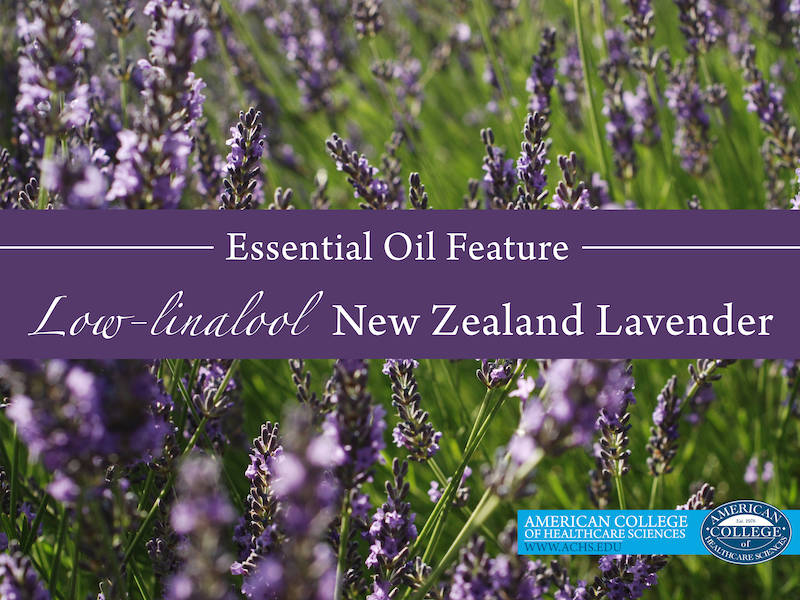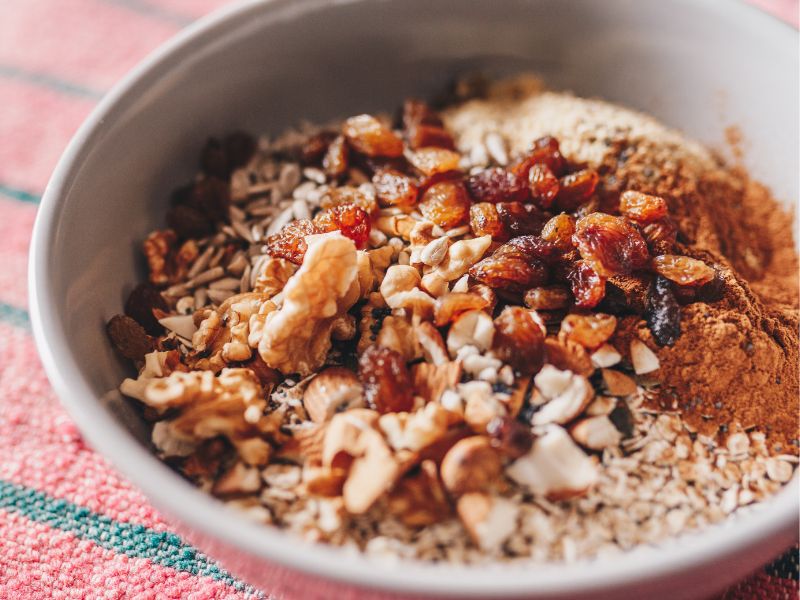Those of you with sensitive skin, get ready to rejoice. There’s a special low-linalool lavender Lavandula angustifolia (Avice Hill) essential oil just for you. This low-linalool oil is grown and produced in my native country of New Zealand—so my Kiwi pride is showing a bit! Linalool (a constituent found in lavender) is currently listed as an allergen by the European Commission. New Zealand lavender essential oil has a lower level of linalool than traditional true lavender Lavandula angustifolia (Mill.).
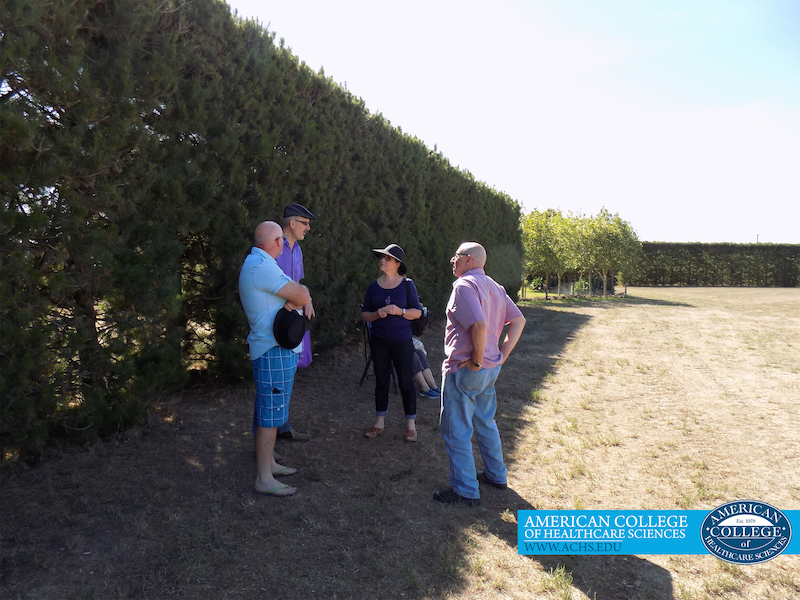
The Story
Pictured: From left to right––Robert Seidel, Dr. Phillip Simms, me, and Owen Dexter at the NZLavender farm in Christchurch.
When my family and I visited my 90-year-old mum in the South Island of New Zealand earlier this year, I took the opportunity to tour New Zealand’s largest commercial lavender farm in Christchurch. I had read about this special lavender produced here from a naturally occurring cultivar of L. angustifolia found in New Zealand.
The owners, Philip and Owen, had a vision to produce the most natural and pure lavender possible, and over the years, their unique variety of lavender L. angustifolia has thrived without the use of herbicides, insecticides, or genetic modification. The South Island location with the close proximity to the New Zealand Southern Alps is proving to be ideal for growing lavender.
But you may be wondering why you would choose the Avice Hill variety of lavender over other varieties…
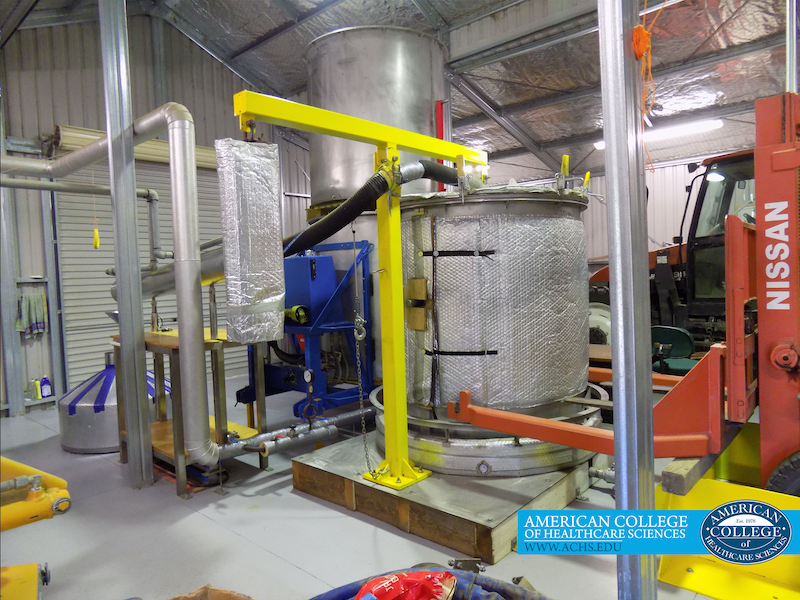
Low Linalool Content
Pictured: The still at NZ Lavender farm.
As mentioned, linalool is listed as an allergen by the European Commission. Because NZLavender essential oil has a lower level of linalool than traditional true lavender L. angustifolia, it is supportive for those with sensitive skin. Yet, NZLavender still has high levels of linalyl acetate, the ester that produces the calming benefits we’ve all come to know and love.
All of these qualities make NZLavender essential oil an excellent option for use on sensitive and delicate skin.
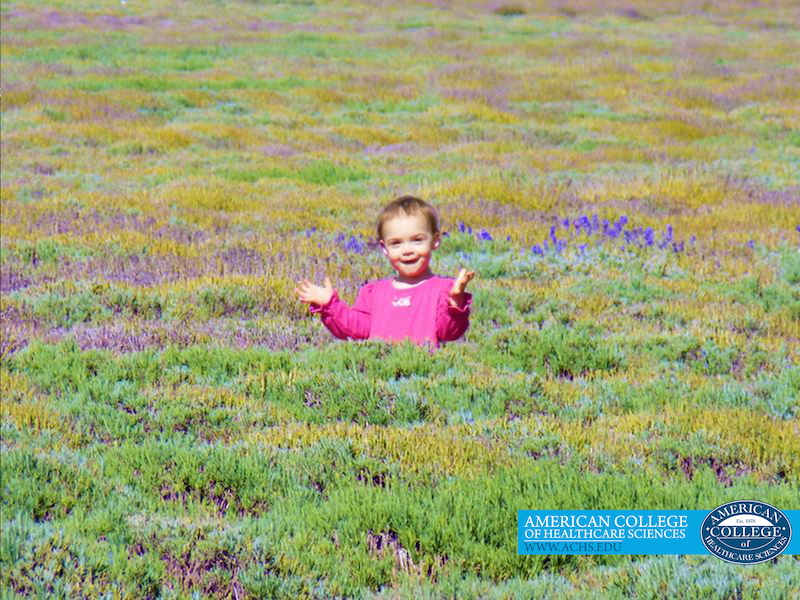 4 Qualities of New Zealand Lavender You’ll Love
4 Qualities of New Zealand Lavender You’ll Love
Pictured: My granddaughter Harriet in a field of New Zealand lavender.
- Perfect for sensitive skin and children
- Retains all the therapeutic qualities of lavender essential oil for aromatherapy
- Annually tested and evaluated by independent laboratories
- GMO-free and sustainably, ethically produced in New Zealand
3 Ways to Use Your Low-linalool NZLavender
You can use your low-linalool lavender essential oil the same way you’d use your regular lavender. My favorite methods of administration for lavender are:
- Skin support. Use a few drops in the bath, diluted in a roll-on bottle, on a washcloth or loofa in the shower, or blended into natural skin care products.
- Soothing sleep. Lavender is the master of sleep support. New Zealand lavender is ideal for sending you off to bed with peace and calm with its sweet, floral fragrance.
- Mood comfort: Let yourself feel the balancing and joyful qualities of lavender essential oil. Add to your diffuser, dilute in a roll-on bottle, or blend with other uplifting oils in a massage oil.
I had a lovely time exploring this lavender farm with my family. (You can see my granddaughter Harriet had a fabulous time as well!)
How will you use your NZLavender essential oil? Let me know in the comments.
Disclosure of Material Connection: I am the President and Founder of American College of Healthcare Sciences, the Institution that publishes this blog. However, all opinions are my own. This blog may contain affiliate links. I am disclosing this in accordance with the Federal Trade Commission’s 16 CFR, Part 255: “Guides Concerning the Use of Endorsements and Testimonials in Advertising.”
This article is for informational purposes only. It is not intended to treat, diagnose, cure, or prevent disease. This article has not been reviewed by the FDA. Always consult with your primary care physician or naturopathic doctor before making any significant changes to your health and wellness routine.
